8 Women Leaders in Politics: Inspiring Change Across Nations
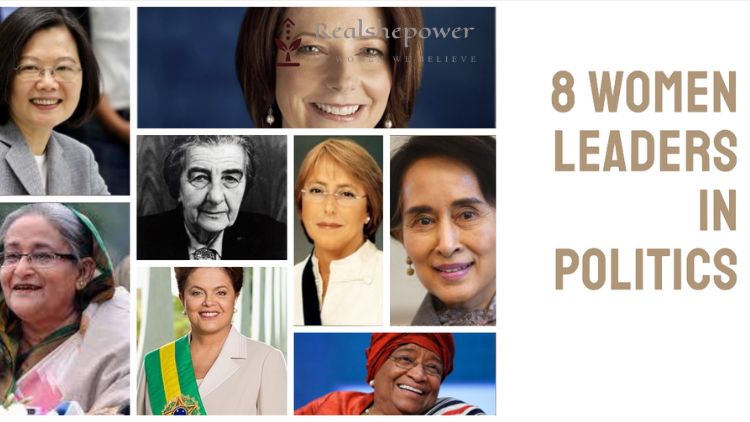

The realm of politics has long been perceived as a predominantly male domain. However, women leaders from various countries have defied societal expectations, shattered glass ceilings, and risen to positions of power and influence. These trailblazers have not only transformed their respective nations but have also left an indelible mark on the global political landscape. In this article, we celebrate the accomplishments of more powerful women leaders in politics, highlighting their journeys, achievements, and the impact they have made in shaping the world.
Table of Contents
1. The Fearless Fighter: Ellen Johnson Sirleaf

Ellen Johnson Sirleaf, a towering figure in African politics, emerged as a symbol of hope and resilience during one of Liberia’s darkest periods. Born in Monrovia, Liberia, on October 29, 1938, Sirleaf’s journey to becoming Africa’s first elected female head of state was paved with determination, tenacity, and an unwavering commitment to democracy and human rights.
As a young woman, Sirleaf embarked on a path of political activism, advocating for social justice and economic equality. Her fearless pursuit of change led her to the forefront of Liberia’s political landscape, where she faced numerous challenges and setbacks. Undeterred, she remained resolute in her vision of a prosperous and inclusive Liberia.
Sirleaf’s rise to power came at a critical juncture in Liberia’s history. The nation had been ravaged by a brutal civil war that spanned over a decade, leaving behind a trail of destruction and despair. In 2005, against all odds, Sirleaf emerged victorious in the presidential elections, becoming the first woman to lead Liberia and the entire African continent.
As President, Sirleaf faced the daunting task of rebuilding a nation torn apart by violence, corruption, and economic turmoil. With her characteristic determination, she embarked on an ambitious agenda of post-war reconstruction, national reconciliation, and institutional reform. Under her leadership, Liberia made significant strides in restoring peace, stability, and democratic governance.
Dilma Rousseff, the inspirational icon and the first female President of Brazil, has left an indelible mark on the political landscape of her country. Born into a family with a strong political background, Rousseff’s passion for social justice and equality was ingrained in her from an early age. Her journey to the presidency was anything but easy. As a young woman, Rousseff became involved in political activism during Brazil’s military dictatorship, facing persecution and even imprisonment for her beliefs. However, these challenges only fueled her determination to fight for a fair and inclusive society. Rousseff’s presidency, which began in 2011, was marked by significant social and economic reforms. She focused on reducing poverty and inequality, expanding access to education and healthcare, and promoting sustainable development. Rousseff’s policies aimed to uplift marginalized communities and bridge the gap between the rich and the poor, creating opportunities for all Brazilians to thrive. Despite facing immense political opposition and economic challenges, Rousseff remained resolute in her commitment to her vision for Brazil. She championed transparency and accountability in government, pushing for stronger regulations and measures to combat corruption. Her steadfastness in upholding democratic values and promoting social justice garnered her both praise and criticism, but she never wavered in her pursuit of a more equitable society.
Aung San Suu Kyi, the State Counsellor of Myanmar, stands as a symbol of unwavering dedication to democracy and human rights. Born into a family deeply involved in Myanmar’s struggle for independence, Suu Kyi was exposed to the complexities of politics from an early age. Her father, General Aung San, played a pivotal role in Myanmar’s fight for freedom, and his legacy would shape Suu Kyi’s path in life. Educated at prestigious universities in the United Kingdom and the United States, Suu Kyi developed a keen intellect and a profound understanding of democratic principles. However, it was upon her return to Myanmar in 1988 that she would face her greatest challenge. In the midst of a turbulent political climate, Suu Kyi emerged as a beacon of hope for the people, as they rallied around her message of democracy and freedom. In 1990, the National League for Democracy (NLD), led by Suu Kyi, won a landslide victory in the general elections, promising a new era of democratic governance. However, the military junta, fearing her influence, refused to recognize the results and placed Suu Kyi under house arrest. This marked the beginning of a long and arduous journey, where Suu Kyi would spend a total of 15 years in detention over the span of two decades.
Sheikh Hasina, the current Prime Minister of Bangladesh, has earned her place as a trailblazing reformer in the world of politics. Born into a political family, she witnessed the struggles and sacrifices made by her father, Sheikh Mujibur Rahman, who played a pivotal role in the liberation of Bangladesh. Inspired by his legacy, Hasina embarked on a remarkable journey to transform her nation and empower its people. Taking office in 2009, Sheikh Hasina faced an array of challenges, including widespread poverty, political instability, and a legacy of corruption. Undeterred, she embarked on an ambitious agenda of economic and social reforms, setting Bangladesh on a path of sustainable development. Under her leadership, the country has experienced remarkable progress in various sectors, from infrastructure development to healthcare and education. One of Sheikh Hasina’s key achievements is her relentless pursuit of gender equality. Recognizing the potential of women as agents of change, she has worked tirelessly to empower women and elevate their status in Bangladeshi society. Through legislation and policy initiatives, she has sought to eliminate discrimination, promote equal rights, and provide opportunities for women to participate fully in all aspects of national life. As a result, Bangladesh has made significant strides in women’s empowerment, with increased representation of women in politics, education, and the workforce.
Julia Gillard, the first female Prime Minister of Australia, left an indelible mark on the country’s political landscape with her resolute leadership and unwavering commitment to public service. Born in Wales and raised in Adelaide, Gillard’s journey to the highest office in the land was a testament to her intelligence, perseverance, and determination. Gillard’s political career began in the 1990s when she served as a senior advisor to various Australian Labor Party politicians. Her sharp intellect and formidable debating skills quickly garnered attention, propelling her into the national spotlight. In 1998, she was elected to the House of Representatives, representing the electorate of Lalor in Victoria. Throughout her career, Gillard championed causes close to her heart, such as education and women’s rights. As Deputy Leader of the Opposition from 2006 to 2010, she played a crucial role in shaping Labor’s policies and strategies, demonstrating her astute political acumen. In 2010, Gillard made history when she became Australia’s first female Prime Minister. Her tenure faced significant challenges, including a divided party, a turbulent global economy, and a hostile opposition. However, Gillard’s resolute nature and her ability to navigate complex political landscapes allowed her to implement substantial reforms and leave a lasting impact.
Michelle Bachelet, a prominent political figure from Chile, has proven herself to be a steadfast advocate for human rights and social justice. Her journey to leadership began with personal experiences of oppression and adversity, fueling her determination to create a more equitable and inclusive society. Bachelet’s political career gained momentum when she became Chile’s first female president in 2006, serving a four-year term marked by progressive reforms and a commitment to addressing historical injustices. During her presidency, Bachelet implemented comprehensive social programs aimed at reducing poverty and inequality, prioritizing access to quality healthcare and education for all Chileans. She championed women’s rights, pushing for gender equality and the empowerment of women in all sectors of society. Recognizing the importance of education, Bachelet focused on educational reforms that aimed to narrow the gap between privileged and disadvantaged students, providing equal opportunities for all. However, Bachelet’s dedication to human rights extends far beyond her presidency. In 2010, she was appointed as the first Executive Director of UN Women, an organization dedicated to promoting gender equality and women’s empowerment globally. During her tenure, she advocated for policies that aimed to eradicate gender-based violence, ensure equal economic opportunities, and promote women’s political participation.
Golda Meir, a true trailblazer in the realm of politics, etched her name in history as one of the world’s first female heads of government. Born in Kyiv, Ukraine in 1898, Meir’s family immigrated to the United States, where she grew up in Milwaukee, Wisconsin. Her early experiences as a Zionist activist ignited her passion for Israel and set the stage for her exceptional political career. Meir’s journey in politics began in the 1920s when she moved to Palestine (later Israel) and immersed herself in the labor movement. Her tireless efforts and undeniable leadership qualities soon propelled her into prominent roles within the political arena. She played a crucial role in negotiating arms purchases for the Haganah, the Jewish paramilitary organization, during the turbulent years leading up to the establishment of the state of Israel. As Israel declared independence in 1948, Meir’s exceptional abilities did not go unnoticed. She swiftly rose through the ranks, assuming various ministerial positions, including Minister of Labor and Foreign Minister. Her unwavering commitment to the cause of Israeli statehood and her pragmatic approach to diplomacy garnered international respect. Meir’s defining moment came in 1969 when she became the fourth Prime Minister of Israel and the first woman to hold such a position in the country. Her tenure was marked by a turbulent period, including the Yom Kippur War in 1973. Despite the immense challenges she faced, Meir’s strong leadership and steely resolve guided Israel through the conflict and ultimately led to peace negotiations.
Tsai Ing-wen, the President of Taiwan, is an inspiring warrior whose leadership has been marked by resilience, courage, and a commitment to democracy. As the first female president of Taiwan, Tsai Ing-wen has shattered gender norms and become a symbol of hope and empowerment for women not only in her country but around the world. Her journey to political leadership was not without challenges. In a highly patriarchal society, Tsai Ing-wen faced skepticism and resistance from traditional power structures. However, her determination and unwavering dedication to her principles propelled her forward. Tsai Ing-wen’s tenure as president has been defined by her steadfast defense of Taiwan’s sovereignty and democratic values in the face of pressure from mainland China. Under her leadership, Taiwan has emerged as a beacon of democracy in the region, standing firm in the face of diplomatic isolation and external threats. Tsai Ing-wen’s strong stance on human rights, freedom of speech, and self-determination has earned her respect and admiration both domestically and internationally. Beyond her commitment to democracy, Tsai Ing-wen has spearheaded efforts to foster innovation, sustainable development, and social progress in Taiwan. Her focus on technology and digital transformation has propelled Taiwan’s economy and positioned the country as a global leader in cutting-edge industries. Additionally, Tsai Ing-wen’s policies have prioritized social welfare, healthcare, and education, aiming to create a more inclusive and equitable society for all Taiwanese citizens.
The inclusion of women in positions of political leadership is crucial for achieving true gender equality and promoting inclusive governance. The accomplishments of these remarkable women leaders from various nations exemplify the transformative power of women in politics. Their unwavering commitment, resilience, and visionary leadership have not only shaped their countries but have also inspired countless individuals worldwide. As we celebrate their achievements, let us continue to strive for a future where women leaders are the norm rather than the exception, and where diverse voices come together to shape a better world for all. You can now write for RSP Magazine and be a part of the community. Share your stories and opinions with us here.2. The Inspirational Icon: Dilma Rousseff
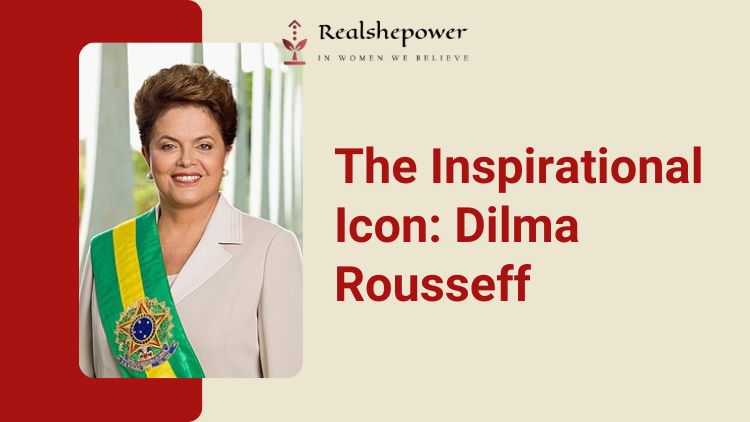
3. The Visionary Advocate: Aung San Suu Kyi
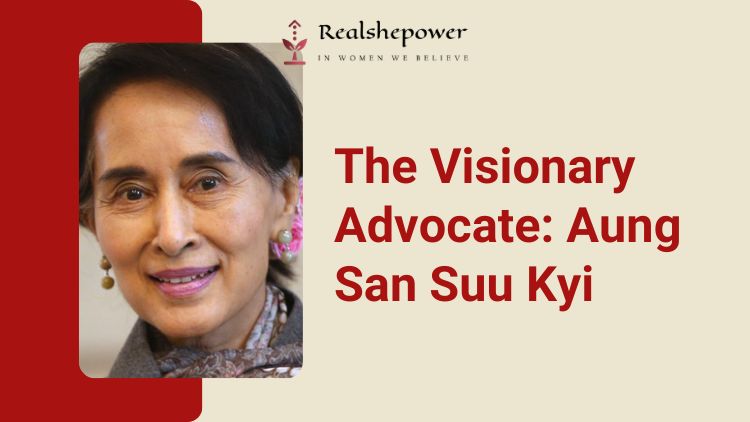
4. The Trailblazing Reformer: Sheikh Hasina
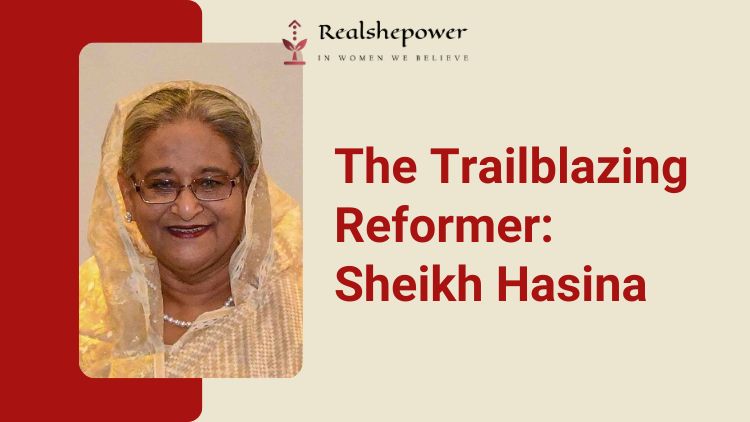
5. The Resolute Diplomat: Julia Gillard
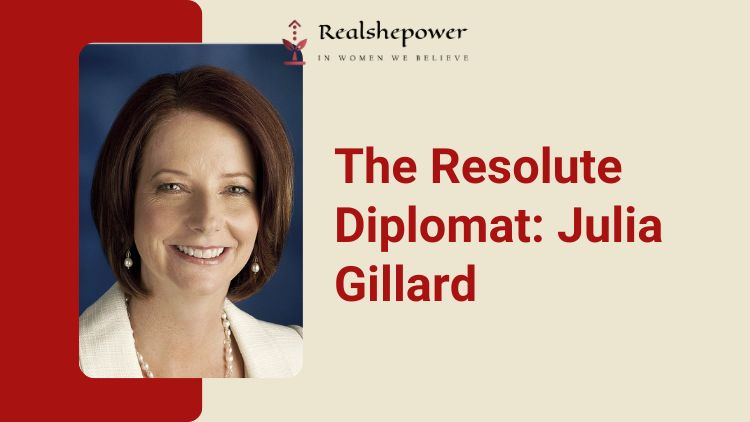
6. The Steadfast Advocate: Michelle Bachelet

7. The Trailblazing Pioneer: Golda Meir
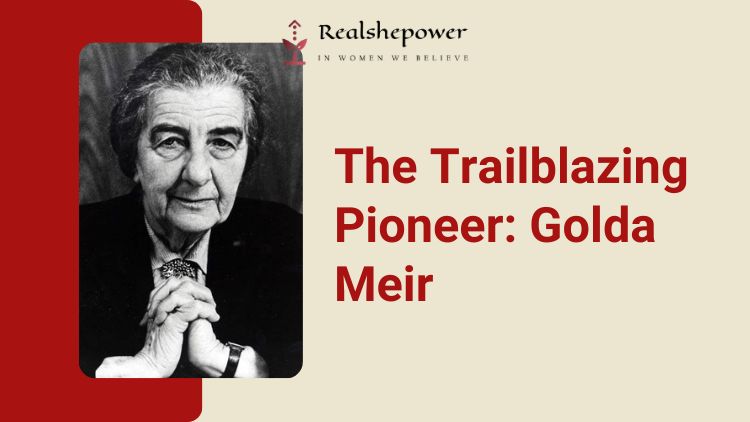
8. The Inspiring Warrior: Tsai Ing-wen
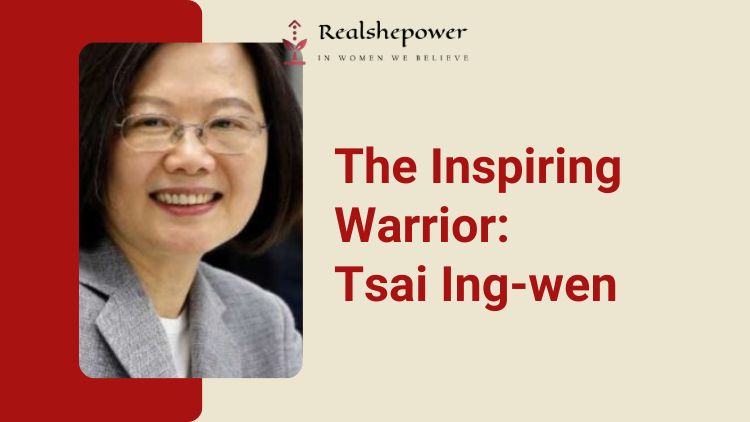
In Closing: 8 Women Leaders in Politics
